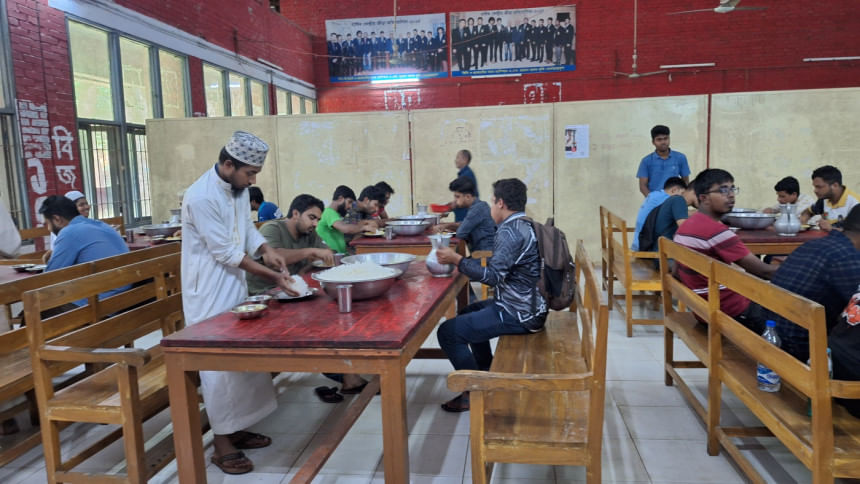CU returns to merit-based hall seat allocations

Chittagong University's residential halls, once marked by political dominance and disorder, are witnessing a shift toward greater discipline in the wake of last year's July uprising.
For the first time in seven years, seats are being allocated based on merit rather than political affiliation.
Students said they can now live without intimidation or pressure; although water shortage, poor food and cleanliness issues still persist.
Many students at the university's residential halls, especially first-year students, are complaining about the poor food quality and unhygienic conditions. While some halls have seen minor improvements, most remain unchanged.
"The food quality is terrible. But repeated complaints have lead nowhere," said Mirza Hasib, a resident of Atish Dipankar Hall.
Prof Dr Fuad Hasan, provost of Shahjalal Hall, said the university's administration only handles "structural issues like electricity, water, and furniture, not food services".
Prof Kamal Uddin, pro-vice chancellor, said the previous monopoly by BCL over the halls had rendered them "uninhabitable" and deprived students of a proper study environment.
"Seats are now allocated on merit and students are living peacefully. The clashes we saw in the past are no longer happening."
Until recently, most halls were under the dominance of the now-banned BCL. Many seats were occupied by politically connected individuals, some of them non-students who often lived rent-free and ate at hall canteens without payment.
Prof Abdul Mannan, provost of Suhrawardy Hall, said after 2017, the halls were under "total control of Chhatra League."
"No one could get a seat on merit. They admitted only their own people and monopolised the halls. The administration at the time failed to act," he said.
Alimul Shamim, a resident of Shaheed Farhad Hossain Hall, said, "The atmosphere here is normal now. There's no political or other pressure. Students move freely and live without interference."
Sakila Akhter from Khaleda Zia Hall said, "Previously, only politically connected students got seats. Now it's based on merit, which has reduced chaos inside the halls."
The provost also highlighted ongoing efforts. "Since the new administration took over, we've repaired reading rooms, washrooms, and provided proper furniture. Our aim is to create a study-friendly environment," he added.
CU has 15 residential halls; 10 for male students and five for female students, with a total capacity of about 7,000. However, this covers only around 18 percent of the university's 30,000 students. Of the seats, roughly 4,500 are in male halls and 2,500 in female halls.
Despite a policy prioritising first-year students, many are left without accommodation due to the acute shortage, the authorities said.
They said construction of two new halls is scheduled to begin this year, alongside renovations to abandoned rooms in the existing halls.

 For all latest news, follow The Daily Star's Google News channel.
For all latest news, follow The Daily Star's Google News channel. 







Comments